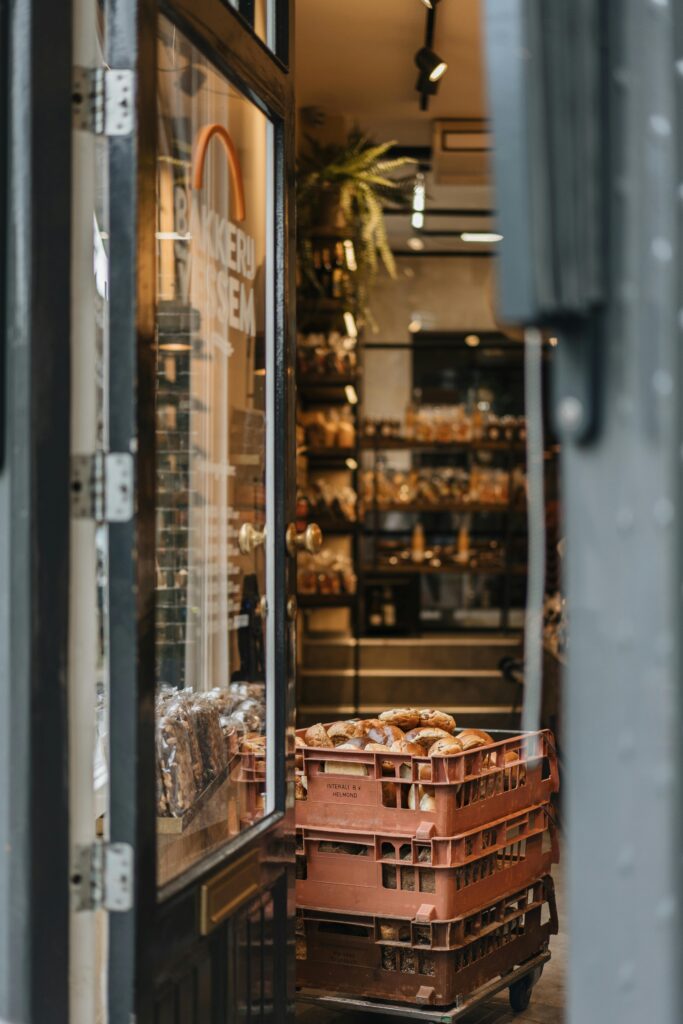Buying a House in the Netherlands as an Expat | Your Complete Guide
Buying a house in the Netherlands as an expat can feel overwhelming at first — new rules, a competitive market, and unfamiliar paperwork. But with the right preparation and guidance, it’s entirely possible to find your dream home here. Whether you’re relocating for work, planning to stay long-term, or considering Eindhoven, Amsterdam, or Veldhoven, understanding the Dutch housing market is the first step. In this guide, we’ll answer your key questions about mortgages, eligibility, costs, and whether it makes sense to rent or buy as an international in the Netherlands.
Some of the most important considerations for internationals entering the real estate market to consider include the current market, your eligibility, and how you secure a mortgage (see our expat homebuyer’s guide for more details).
. In September of 2024, the home prices for existing owner-occupied dwellings in the Netherlands were 11.4% more expensive than the same time last year, the largest increase in home prices in two years (CBS Housing Data).
Driven by a variety of factors, the housing shortage in the Netherlands continues to impact both the rental and the buying market. While this can be discouraging, with the right tools, patience, and luck, you can still find yourself at home here. It does mean that your preparation steps are vital to success, as is acting decisively and making a positive impression on the seller.
It used to be that banks would not allow internationals to secure a mortgage before they’d lived in the country for 5 years. Fortunately, those kinds of restrictions are becoming a thing of the past. Now, with a valid passport, BSN, proof of income, and proof of registration in the Netherlands, anyone can buy a home (Dutch government mortgage rules).
Still, international buyers only made up 2% or less of the home buyers in 2024, with the highest concentration of international buyers in Amsterdam, Veldhoven, and Eindhoven. This brings up an important question.
Should You Buy a House in the Netherlands as an Expat?
What is a good rule of thumb when deciding between renting and buying a home in the Netherlands as an expat?
Our advice, based on experience, is that if you plan to live in the Netherlands for three years or less, it’s best to rent your home. The costs of owning a home will not outweigh the benefits in that short a time period. If you plan to rent out your home after you leave the country, you will generally need to get permission from your bank, and you may find the costs incurred do not cover your mortgage payment, let alone bring in a profit.
Benefits of renting include the ability to (usually) cancel your rent at any time. You also know your costs, and major maintenance is usually carried out by the landlord.
But there are advantages to owning your own home, too. One is that your monthly mortgage payments usually remain the same, whilst rent continues to climb. Also, any increase in the value of the home is yours. Whilst the major maintenance costs are yours, so is the freedom to choose how you make your house a home.
You will be eligible for tax relief on the mortgage interest, and a number of costs relating to financing a house in the Netherlands are tax-deductible (Belastingdienst mortgage relief).

How to Prepare for Buying a Home in the Netherlands
Before you start your search for a home, ask yourself if you are eligible for a mortgage. Because, unless you have the required money in cash, you will need a mortgage. And to get one, there are several things you need to have.
For instance, you need to be living and registered in the Netherlands, have proof of income or employment, a BSN (Burger Service Nummer), a valid passport, and possibly proof of the ability to extend the visa if you are not an EU resident.

Mortgage Requirements for Expats in the Netherlands
If you meet all the requirements, then it should not be a problem to get a mortgage. We are also happy to help you by putting you in touch with an expert advisor who specialises in expat mortgages. While mortgages aren’t pre-approved in the Netherlands, you will know how much of a mortgage you are likely to qualify for. To prepare, gather relevant documents.
- Copy of valid passport(s)
- Resident permit (if applicable)
- Recent salary slips (no older than 2 months)
- A statement about your employment (no older than 2 months)
- Your contract of employment
- Confirmation letter of 30% ruling (if applicable)
- Overview of assets/savings
- Overview of credits/loans

What if I’m self-employed?
You may be asking if you still qualify for a mortgage. The answer is yes. In most cases, you will need to have at least one year of running your business. And if you have been in business for less than 3 years, your qualifying income may not count in full.
When looking at your application, mortgage providers will consider what industry you work in, your fixed expenses, how much risk you take in your business, how your business and profits have developed, and your expectations for the future of your business.
What if I want to rent the house out as an investment?
In the Netherlands, you can’t get a standard mortgage if you are renting out your house, even if you are planning to move abroad. If you want to rent out your home, you can get a special buy-to-let mortgage.
These mortgages have a higher interest rate and are not tax-deductible.
What if I have property in other countries?
If you also own a home in another country or work abroad, you may not be eligible for the mortgage interest tax relief.
If you already have a mortgage and plan to move abroad, be prepared to ask permission from your bank to rent the home out. This can impact the interest rate of your mortgage.

Costs of Buying a House in the Netherlands
Buyer’s costs, or kosten koper (k.k.), are the expenses you have to become the owner of a home. These costs cannot be financed in your mortgage. That means you need enough money to pay them yourself. You can count on buyers’ costs between 4-6% of the purchase price, but many parts of the buyer’s costs are tax-deductible.
2% Transfer tax:
In the Netherlands, the government charges a transfer tax of 2% of the purchase price to a buyer when they buy a home. Normally, a notary draws up a deed of transfer before closing. They then charge the property transfer tax owed, file the property tax return on your behalf, and pay the tax to the Netherlands Tax Administration (Belastingdienst).
Keep in mind that if you are under 35 years old on the day that the home is transferred to you, and it’s your first Dutch home, and you bought it for a maximum price of € 510.000 (2024), you are exempt from paying the transfer tax!
If you buy a home with your partner and only one of you is under 35 at the transfer date, the tax will be 1%. This is an exemption that the government made to help young people buy their first home, and it is also applicable if you don’t have Dutch nationality. The home itself needs to be in the Netherlands, of course.

Notary fees:
The notary is the only one authorised to transfer your new home. For this purpose, they draw up two notarial deeds. These are the deeds of delivery (transfer deed) and the mortgage deed. Both deeds are mandatory when buying a house with a mortgage. Notary fees for a standard transfer and mortgage are around €1500.
Other possible expenses
These are the costs that every buyer has, but likely, you will also be confronted with some other costs. This, of course, differs per candidate. The most common costs are related to the mortgage. Think, for example, of these other possible expenses (based on a €400.000 loan). The given costs are an estimate:
- Mortgage advisor & brokerage costs. Approximately €3000,-
- Application & deposit for NHG (National Mortgage Guarantee). If you decide to guarantee your home against a possible time when you can’t pay the mortgage, it’s 0,6% of the mortgage, so €2400.
- Bank guarantee costs. 0,01% of the mortgage, so €400,-
- Interests & costs of bridging loans. This depends on the rate and the length of the bridge loan.
- Certified appraisal. €750,-€850,-
- Buyer’s makelaar’s commission. approximately €4000,-€6000,-
- Building inspection. +/-€350,-

Of course, the applicable costs differ per buyer, but at least you have an idea of possible extra expenses. And different rules apply to someone aged 59 than to someone aged 29. Internationals who have the official “30 per cent ruling” also face different tax conditions than the average buyer (see the official 30% ruling for expats for details).. So always get extensive information from a certified mortgage advisor first, certainly before you go and view a home or even make an offer on it. Valuable information prevents problems and disappointments.
How can I get a quick estimate of the mortgage I might qualify for?
If you want to know how much you can borrow, you can often get a general idea of your maximum borrowing by filling in a loan calculator online. This cannot be compared to individual, tailor-made advice. For example, one mortgage bank looks at variable income, such as a “bonus,” differently from another.

Do You Need an Expat Buying Agent in Eindhoven?
Ok, now you know what you can borrow and what conditions you need to meet to qualify for a mortgage. Now you must decide whether you are going to look for a new home yourself or whether you are going to hire a makelaar, such as a trusted expat buying agent in Eindhoven.
. A buyer’s makelaar helps with the search and guides you wherever he or she can. Of course, you can also do it yourself because that doesn’t cost any money. Here are several pros & cons to consider:
| Pros ✓ | Cons ✕ |
| Buyer’s makelaars know the market, Dutch laws and location. Their local experience and connections are at your disposal. | The buyer’s makelaar commission is a percentage of the home sale, and as such, can be too high for some buyers to pay. |
| They tend to be professionally objective. Both buyers and sellers benefit from the emotional detachment a buyer’s makelaar brings. | The buyer’s makelaar might not provide enough value to justify their fee, especially in straightforward transactions. |
| Buyer’s makelaars can save you time and money, streamline your journey, and reduce the associated stress. | Choosing the right buyer’s makelaar can take time, as it is important to ensure they are licensed and don’t have conflicts of interest. |
| Buyer’s makelaars can get their buyers into homes that are no longer accepting viewing requests, and give a heads-up about upcoming homes. | For those who prefer a more independent approach to their home search, partnering with a buyer’s makelaar can feel limiting or frustrating when that makelaar needs to juggle the needs of multiple clients. |
| Buyer’s makelaars can negotiate better deals than simply working through the seller’s makelaar. | A lack of communication between the buyer and makelaar can lead to unsuitable property selections, frustrating the buyer’s objectives. |

Guiding you from house to home
Here at The Xpat Agent, our goal is to help you find yourself at home here in the Netherlands.
We do that by providing you with educational resources and supporting you with reliable buying and selling assistance through our experienced makelaars.
Should you have any further questions about the buying process, want to see one of our listed properties, or inquire about assistance from our buying or selling agents, feel free to contact our team for personal support.
.
The door is open.


 How Do I Make My Bid Stand Out?
How Do I Make My Bid Stand Out? Buying a Home in Eindhoven
Buying a Home in Eindhoven How Does the Bidding Process Work?
How Does the Bidding Process Work?